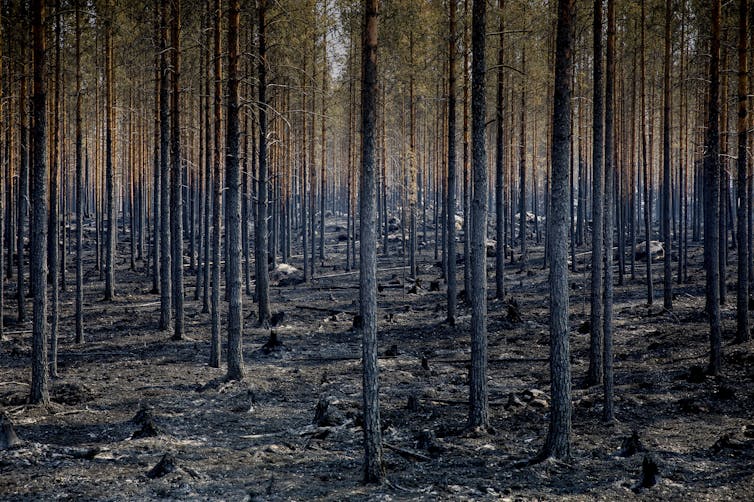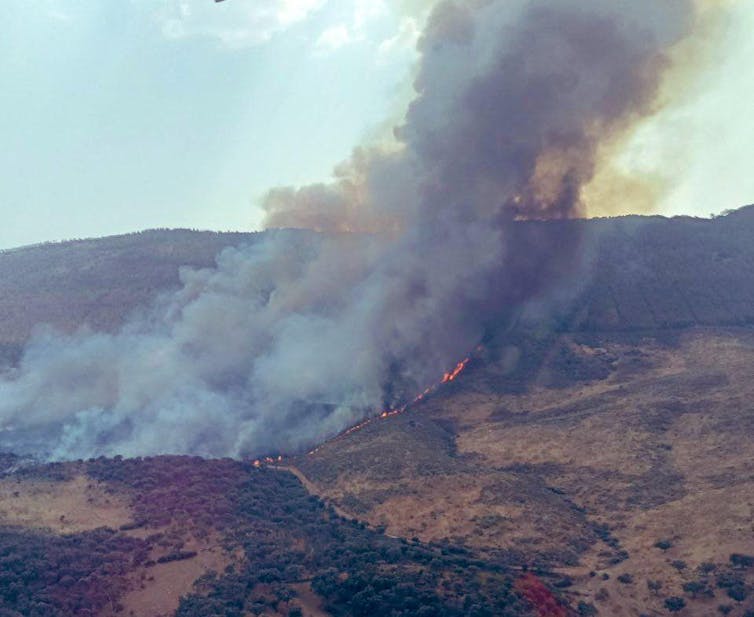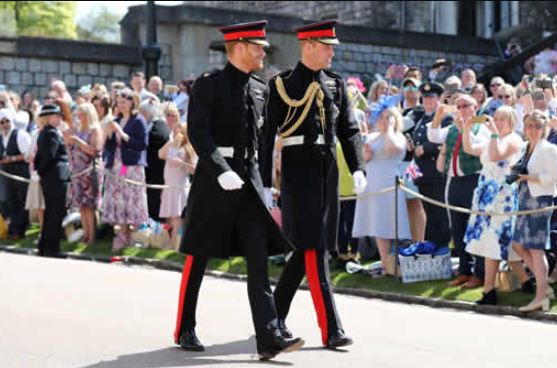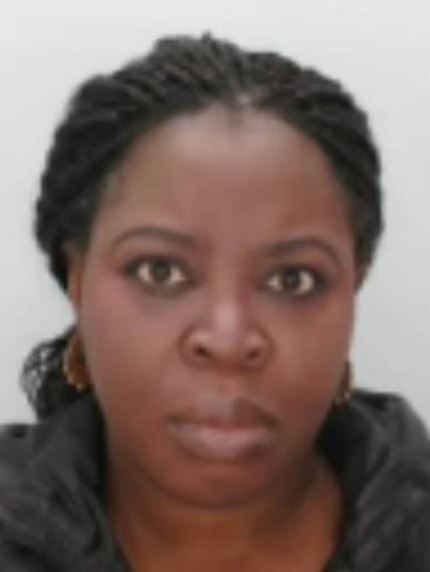
United Kingdom (247)
Latest News
How Prince William Physically Attacked Me – Prince Harry Makes Stunning Claim
Thursday, 05 January 2023 15:48 Written by ToriAs homelessness grows, its stark impact on health is becoming clearer across Europe
Monday, 26 December 2022 22:19 Written by theconversation 
Rosa Gómez Trenado, Universidad Complutense de Madrid and Jaime Barrio Cortes, Universidad Camilo José Cela
The latest data compiled by the Spanish National Institute of Statistics show that the number of homeless people has grown by 25% in Spain in the last ten years. This social problem has gone from affecting 22,900 people in 2012 to more than 28,500 people in 2022. The average age of people in this situation in Spain is 42.7 years.
Numbers do not look much better across Europe. The European Parliament highlights the precarious living situation of more than 700,000 people facing homelessness every day (and night) across Europe. There has been a 70% increase in just a decade.
Beyond the basic need for shelter, housing is key to the development of a life project. That is why it is a fundamental human right.
Not having a permanent place to live increases inequalities in the access to basic citizenship rights. This includes the right to health care.
How does one become homeless?
Many factors can lead to homelessness. Sometimes they are individual or family related, such as divorces, periods of mournings, mental illness, domestic violence or substance abuse. Structural factors are also involved, such as difficulty to access affordable housing, unemployment (or precarious employment) and discrimination.
In addition, the European Federation of National Organisations working with the Homeless (FEANTSA) stresses that institutional factors such as a lack of coordination between services or an inadequately structured welfare system may be behind homelessness.
Homeless people live almost two decades less
According to a Polish study, homeless people have an average life expectancy of 17.5 years less than the rest of the population. They have also been found to have between 2 and 50 times more physical health problems, and their living conditions lead to multiple or chronic illnesses. Mental illness, addictions and communicable infectious diseases are particularly prevalent in this group.
The main problem detected is that most homeless people do not have access to primary health care services, do not have a family doctor, and are usually treated through emergency services when they reach a serious or extreme situation. The direct consequence is an average age of death that has been estimated at 52 years for women and 56 for men. An Irish study based on homeless people in Dublin reduced it further: 36 years for women and 44 for men.
This is especially tragic when we learn that around one in three deaths of homeless people are due to causes that could be avoided with timely and effective health care.
In particular, cancer is the second most common cause of death among the homeless population. Cancer mortality is twice as high among homeless people, compared to the general adult population in high-income countries. This is not only because of lack of treatment, but also because these individuals often do not have access to prevention and early detection, which is essential to increase the chances of survival, reduce morbidity and reduce the cost of therapy. In addition, they are more exposed to chronic stress and poor nutrition.

The poorest live shorter lives and get sicker
If homeless people are not to be hit by cancer, it is essential to make them visible to public systems. With this aim in mind, several Spanish, Greek, Austrian and British institutions have recently launched the EU-funded pilot project Cancerless together with FEANTSA.
Until the end of 2023, they will work with 1,500 homeless people in Madrid, London, Athens and Vienna, trying to increase their capacity to make better and more informed decisions about their own health. This involves, among other things, running workshops on healthy habits to prevent cancer and including all homeless people in screening programmes such as mammograms, cervical or colonoscopies.
Combining health education and social support is the best way to ensure that homeless people are not excluded from the process of early detection of cancer through prevention. To this end, the pilot activates a coordination figure between the social services system and the primary health care system called Health Navigator. This model implements actions to overcome health inequalities by working individually with those affected both in centres for the homeless and in health care centres.
The ultimate goal is to achieve health equity, i.e. that people can develop their full health potential regardless of their social position or other circumstances determined by social factors.![]()
Rosa Gómez Trenado, Trabajadora Social. Investigadora en la FIIBAP. Profesora de Grado y Máster en la Facultad de Trabajo Social, Universidad Complutense de Madrid and Jaime Barrio Cortes, Médico de familia investigador en Fundación para la Investigación e Innovación Biosanitaria en Atención Primaria (FIIBAP). Director del Máster en Salud Escolar y docente en Facultad de Salud, Universidad Camilo José Cela
This article is republished from The Conversation under a Creative Commons license. Read the original article.
These are the implications of the latest wave of mega-fires for the European Green Deal
Monday, 26 December 2022 22:16 Written by theconversation 
Víctor Resco de Dios, Universitat de Lleida; Julien Ruffault, Inrae; Marcos Rodrigues Mimbrero, Universidad de Zaragoza; Paulo Fernandes, University of Trás-os-Montes and Alto Douro, and Rodrigo Balaguer-Romano, UNED - Universidad Nacional de Educación a Distancia
The last embers of 2022 fire season are finally extinguished, but the coming year’s mega-fires are also already sprouting. Although they are not making headlines now, the fires to come are quietly gestating: fuel continues to grow and, as soon as the weather allows it, they will strike again with renewed vigour.
This summer in southwest Europe, the figures have been overwhelming: more than 80,000 people evacuated, around 460,000 hectares burnt, a huge but unknown number of houses and farms destroyed and, worst of all, five casualties.
We have published the first study that examines both the causes and consequences of this year’s fire campaign in southwest Europe, in order to prevent future misfortunes. The results suggest that we need to change our understanding and interaction with forests.
Protected areas: victims and executioners
Our analysis reveals that the first thing we need to review is how we are managing protected areas, spaces such as national or natural parks.
Half of the burned surface has been located inside protected areas. This indicates that those are the big victims of forest fires.
The large proportion of burned area in protected areas also suggests that fires may be burning in those areas preferentially. In other words, the current management of some protected areas, by not providing integrated fire prevention, could lead to particularly flammable vegetation types.
This is not surprising. Vegetation is often fire-adapted and, when unmanaged, high intensity fires can naturally occur.
For example, one of the world’s largest ever fires took place in a national park: 321,300 hectares burned in a single fire in Yellowstone, USA, in 1988.
In fact, the largest fires have burned such emblematic areas as the Sierra de la Culebra and Monfragüe National Park in Spain, Serra da Estrela in Portugal and the Landes de Gascogne in France.
Although people and rural economies have been the main victims, fires encourage rural abandonment. This, in turn, leads to the increase of undergrowth – the perfect fuel – and a vicious circle that ends in large fires.

Plantations: profitable forests also burn
Forest management has been defended as the best tool to prevent fires. The paradigm that profitable forest does not burn has been used on several occasions to explain, for example, why fires are rare in Soria (a region in Spain).
However, past records have been broken this year for the area burnt in Aquitaine (France), an area where productive maritime pine plantations abound. There, the area burnt was 52 times higher than the long-term average.
The vaccine against fires is not in forest management per se, but in fuel management. Because fires spread mainly through undergrowth, we must try to keep shrub and litter loads below the thresholds associated with high intensity fires.
Classical forest management, understood as the regulation of tree density, is necessary to reduce the probability of crown fires, but is not sufficient to reduce the main fuel.
The type of vegetation that has burnt most this year is precisely the shrub, due to its high fuel load. The second type to burn the most have been pine forests, whether natural or from reforestation.
Climate change: catalyst for fires
We must abandon also the idea that the current fires are caused by climate change. This year has seen record-breaking temperatures due to a concatenation of heat waves. Our results indicate that the fuel (i.e. leaf) moisture values have been below historical minimums during almost 50% of the summer in some regions.
In addition, climate models tell us that this year’s temperature will be the average from 2035 onwards. In other words, what we have experienced this year is only a preview of the new normal that is to come.
Climate change is therefore a catalyst, an accelerator of the problem of forest fires. It acts on a substrate, which is the state of fuels. Climate change imposes greater urgency on the need for fuel management to reduce the risk of future mega-fires.
Implications at European level
Beyond southwest Europe, this year we’ve seen very high levels of fire activity in many Central and Eastern European countries, including Germany, Romania and Hungary. The fire problem is no longer circumscribed to the Mediterranean Arc, as it is now a pan-european issue.
The European Union is currently developing a series of laws and strategies for the implementation of the European Green Deal. Chief among these is the Nature Restoration Law, whose proposal was approved in June. The current text proposes to increase the concentration of dead fuels in forests, the spatial continuity of fuels and undergrowth cover. From the perspective of fire risk, these are the ingredients for the perfect storm.
Wildfires can no longer be added as a simple tag line in EU’s forest strategies and legislation. We recommend that wildfire prevention plays a central role within forest policies at continental scale so we can adapt to the new reality. Otherwise, the Green Deal may just fuel the megafire problem.
This article has been written in collaboration with Francisco Castañares, president of the Friends of Monfragüe Association, and Celso J. Coco Megía, from the Almázcara Integrated Vocational Training Centre.![]()
Víctor Resco de Dios, Profesor de ingeniería forestal y cambio global, Universitat de Lleida; Julien Ruffault, Chercheur postdoctoral sur les incendies de forêts, Inrae; Marcos Rodrigues Mimbrero, Profesor Ayudante Doctor en Análisis Geográfico Regional, Universidad de Zaragoza; Paulo Fernandes, Profesor de incendios forestales, University of Trás-os-Montes and Alto Douro, and Rodrigo Balaguer-Romano, Investigador Predoctoral, UNED - Universidad Nacional de Educación a Distancia
This article is republished from The Conversation under a Creative Commons license. Read the original article.
Popular News
It’s Tiring – UK-Based Nigerian Lady Laments Constant ‘Billing’ From Relatives In Nigeria (Video)
Friday, 02 December 2022 02:48 Written by ToriUK Police Detain Man For Throwing Eggs At British Monarch, King Charles III
Thursday, 10 November 2022 01:30 Written by SAHARAREPORTERSAccording to a video footage, several eggs were seen in motion and smashed on the ground; none appeared to hit the royal couple.
Aman has been detained by the British police for allegedly thrown eggs at King Charles III and Camilla, the queen consort, as they walked in the northern England city of York.
According to a video footage, several eggs were seen in motion and smashed on the ground; none appeared to hit the royal couple.
Washington Post reports that the incident happened as the monarch and his wife were entering York through Micklegate Bar, a medieval gateway where monarchs are traditionally welcomed to the city.
Britain’s PA news agency reported that the man shouted “this country was built on the blood of slaves” as several police officers could be seen grappling with the man at a crowd barrier as he was being detained.
Meanwhile; Charles and Camilla also are due to visit the city’s cathedral, York Minster, and unveil a statue of Queen Elizabeth II, who died in September.
SaharaReporters had in September also reported that the an Oxford history lecturer was detained and transported to a police van during the proclamation of King Charles III for yelling "who elected him?”
Symon Hill, 45, who described his ordeal to Oxford Mail, had expressed concern over the British people being forced to accept a Head of State without a democratic election.
Hill said he came across the procession on his way from church, and while bystanders urged him to keep quiet, he responded: “A head of state has been imposed on us without our consent.”
“Two people near me turned to me and told me to shut up, which they have every right to do, and I told them I didn’t think a head of state should be imposed on us,” Hill said.
“I feel very surprised and very shaken, and I feel like my free speech and my dignity as a person has been attacked simply because I expressed an opinion,” he added.
The British constitutional monarchy, according to Hill's protest, will be out of style in 2022, along with other anti-monarchy demonstrators in the UK.
A 22-year-old woman, with a protest sign, was also arrested outside St Giles’ Cathedral, where the Queen’s coffin was due to be held.
Shortly after she held out her sign, police officers appeared behind her and took her away, prompting the crowd to applaud.
While a man in the crowd shouted “Let her go, it’s free speech,” others in the crowd said the lady ought to have some respect for the departed queen.










